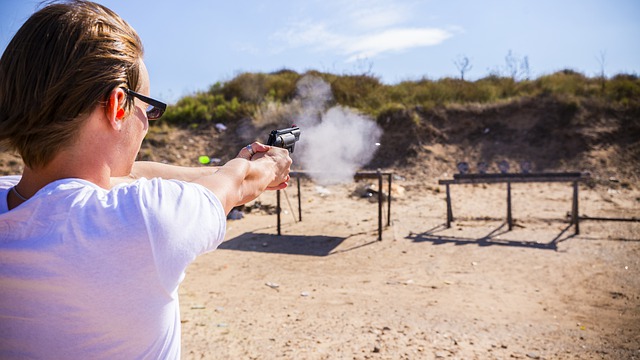Gun Legislation in New Hampshire

Three firearms related bills had public hearings this week. The House Criminal Justice and Public Safety Committee held public hearings on Wednesday for HB1379 and HB1101. The NH Senate Judiciary Committee held a public hearing for SB469 on Thursday. The two House bills were considered by the legislature last year and vetoed by Governor Chris Sununu.
“Gun Show Loophole?”
Gun shows are a long-held event in the United States and happen weekly in New Hampshire. In most states private sales often don’t require background checks. It is, however, illegal to sell to someone who cannot own a firearm. This practice ensures that private sales are often done in the open and can be traced by paperwork if a gun ends up being used in a crime. The authorities will be able to follow the trail of the business who conducted the initial background check of the commercial sale to the private seller to the private buyer who bought the gun from them through bill of sale paperwork. If bill of sale paperwork doesn’t exist, the last person who is legally shown to have owned the firearm will have to explain why they didn’t report it missing or they may face charges. A person who sells a gun to someone who legally can’t have one may also face charges of their own.
HB1379 would essentially treat private sales made or arranged at New Hampshire gun shows as commercial, thus requiring background checks on them.
The law doesn’t change at gun shows. All commercial operators at the show still must run background checks on purchases. Private sales do not. Supporters of HB1379 say “gun shows” are of a commercial nature and therefore call the regular law a loophole for people who are privately selling arms at the show. Gun shows usually require proof of residency. Some gun shows will facilitate background checks for attendees. Some gun shows require purchasers to have a Pistol/Revolver License to make a purchase. While the license itself isn’t required in New Hampshire for concealed carry, it still exists because it secures extra benefits to citizens such as reciprocity to carry in some other states and being able to legally carry on school grounds which is illegal under Federal Law without a carry permit. The process of obtaining a Pistol/Revolver License involves a background check by the local police who issue the permit.
Opponents to HB1379 point out that requiring background checks means that private citizens who normally don’t operate commercially will have to get a commercial license to sell guns they don’t want anymore or that they will be at the mercy of private businesses which often charge fees to run a background check for them. According to the US Department of Justice the majority of guns used by criminals were either purchased off the black market or stolen. That same 2019 report cites 0.8% of prisoners say they obtained their firearm used during a crime from a gun show.
“Suicide Prevention”
Suicide is on the rise in New Hampshire. Advocates for the gun purchase waiting periods say that they may play a role in preventing crimes or passion or suicide by giving time for emotions to settle before someone does something rash.
HB1101 would impose a three-day waiting period on firearms purchases in the state.
The initial form of the bill last year involved a seven-day waiting period on both guns and ammunition in the state unless the purchaser took a state-required hunting course. It has since been amended to a shorter length of time and to only include firearms, not ammunition. Opponents to the legislation are skeptical of its impact and say that it creates an undo burden on individuals, especially those who fear for their safety or already own firearms. The Rand Corporation says data is inconclusive on the effectiveness of the laws at this time. Common ground is being found on this subject outside of legislation at this time, however.
“Gun Ranges: Loud and Dangerous?”
SB469 would allow prosecution of gun ranges for violating noise ordinances or for damages caused by range operation.
This bill would deal primarily with ranges that already exist. New ranges have to make allowances for town requirements regarding safety and noise, but if someone moves in next to a gun range that existed before they moved: they accepted that choice when they moved there under current law. Supporters of the bill want to enable local towns to impose more regulations and requirements on gun ranges that already exist. Opponents say this bill is largely designed to close down ranges by imposing impossible expenses or standards to keep up with.


